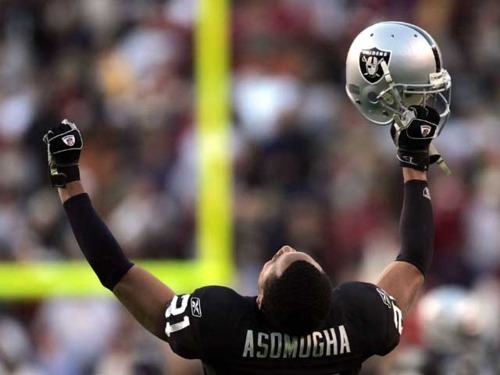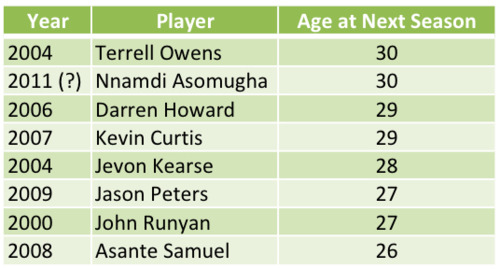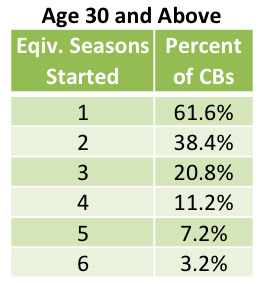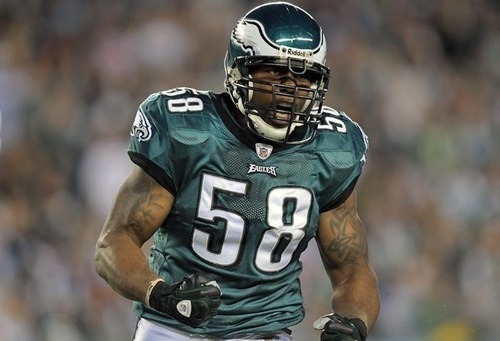I hope everyone is reading Brent Cohen's work over at Eagles Rewind. He's playing with stats and coming to interesting conclusions, especially with his PVM (Positional Value Multiplier) prospect rankings that add a discerning adjustment to the standard draft preparation.
Brent's goal is to take the consensus draft prospect rankings and apply two main modes of adjustment. First is a risk factor that attempts to quantify how reliable different positions are. He shows that offensive tackles, for example, have a bust rate of only 26%, compared to 50% for quarterbacks and 66% for running backs. One can quibble with the metric (you might adjust for likelihood of Pro Bowl appearances instead of failure to start), but it's a good one to have. The second main adjustment is for positional value, i.e. how much one player is worth relative to another at a different position. Brent uses salary cap data to show a clear hierarchy, from centers and guards at the bottom to defensive ends and quarterbacks (far and away) at the top. Again, you can quibble with the exact numbers, but it's quite promising stuff.
The PVM rankings that emerge are interesting to look at. Certain players receive bumps -- especially quarterbacks. Others fall slightly, like guards and centers. The final result is not a radical departure from the original consensus, but that's not Brent's goal.
It is mine, though. I look at the numbers pulled, especially on salary cap figures, and it's obvious to me that there's a huge disparity in value between different positions. Brent's cap percentages are at right, and you can see that while the middle group is close, there are certain spots that vastly outweigh others. As I described above, the PVM rankings make an adjustment along these lines, but it doesn't come close to matching the discrepancies in value. In expected value terms, if you have two similarly-talented prospects -- one a center and one a defensive end, you should take the defensive end every time. In fact, if you take it literally, the center would have to be three times as good of a prospect as the end to warrant consideration.
Maybe this is too extreme of an adjustment for your tastes. If you want something closer to the consensus prospect values, Brent's PVM should serve you well. But I think this more accurately represents the reality on the ground. Chance Warmack may become a Pro Bowl guard -- many scouts rate him as the best player in the draft. But there's a strong case to be made, based on this data, that he would have to be 1.5 times better than the next best cornerback, 1.8 times better than the next best defensive end, or 2.7 times (!!!) better than the next best quarterback.
Plenty of caveats apply here, including the risk factor that I mentioned above. And you may either disagree with the salary cap distinctions entirely or have a more refined model based on it. I also haven't run my own projections for using this data to provide an updated draft list.
But if you look at the draft through this qualitative lens, it's easy to make an affirmative case for a quarterback, even Geno Smith. At this point I don't expect the Eagles to draft him. Most scouts consider Smith the best quarterback prospect, but also suggest that he wouldn't be so in previous years. Average rankings seem to consider him about 20th overall. That doesn't seem like the type of player you want to use your top five pick on.
However, I've said before that you always take the quarterback if you think he's your guy and the data backs that up. A good starting quarterback is worth nearly 50% more than the next most valuable position, according to salary cap numbers (and one might argue that's understating it). It's importance towers over other concerns. That means that even if Smith has a worse chance than average to become a good starter, his expected value from that smaller probability is still high -- likely higher than many players who will be drafted ahead of him. Smith may not be the safe pick, but if the goal is to maximize value, he may be the right one.
Photo from Getty.


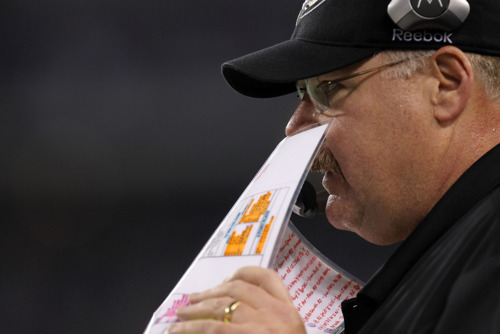 It’s not easy to explain the free agent binge the Eagles have embarked on over the last week. People have tried, of course, but I can’t help but find most of their explanations lacking.
It’s not easy to explain the free agent binge the Eagles have embarked on over the last week. People have tried, of course, but I can’t help but find most of their explanations lacking.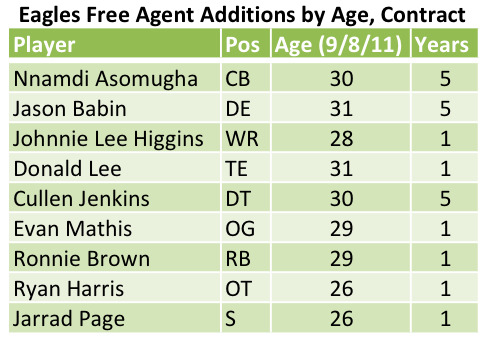 I look at the list of free agents additions at right and I don’t see a big shift in philosophy. Some of the guys are older, but they’re top players still in their prime, not fading former stars. And, to reiterate, they haven’t let themselves get too risky with the deals.
I look at the list of free agents additions at right and I don’t see a big shift in philosophy. Some of the guys are older, but they’re top players still in their prime, not fading former stars. And, to reiterate, they haven’t let themselves get too risky with the deals.